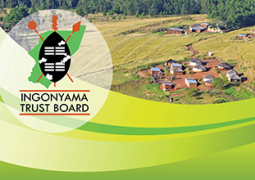
The Ingonyama Trust Board (ITB), an entity entrusted with the task of administering traditional land in KwaZulu-Natal (KZN), appeared before the Portfolio Committee on Rural Development and Land Reform to present 2nd and 3rd Quarter performance and financial reports.
“What were the underlying causes of illegal occupation in Newcastle?” asked Mr Mncedisi Filtane. “We were there and we know how hot the land issue is in Newcastle. We need to understand the severity of the matter so that we can begin to find a solution.”
The Chairperson of the board said: “When we heard there is land invasion in September last year, we realised this was a politically instigated action. But later we found out it was otherwise, it was an internal squabble. We used a dual approach to have a legal protection and got an interdict. We did not implement it and we continue to engage the people. There is now a draft settlement. Come court date time, this matter will be resolved.”
“How relevant are the educational awards to your overall objectives?” asked Mr Pumzile Mnguni. “We hope you don’t make students learn things that won’t benefit your objectives.”
Mr Sipho Ngwenya said the awards are part of the public good the ITB could do to advance communities in its jurisdiction. “If there is a mining house, its revenue is allocated by the board accordingly. The beneficiaries come from these areas and the money generated from projects is divided accordingly.”
When a Memorandum of Understanding (MoU) is signed with commercial entities, how do the communities in those areas benefit from the MoU?” asked Mr Elleck Nchabeleng.
The Chairperson of the ITB replied: “There are various entities and government departments that have legal jurisdictions over the land. Currently, there is no Memorandum of Understanding that determines how these entities should work together in a uniformed matter. For instance, a department would give mining permission to a certain company without our knowledge or without informing us – and people would blame us for that. Hence, we recommend that there must be an MOU that will determine how these entities work together.”
Mr Nchabeleng went on to state that seemingly, there are tensions over land in KwaZulu-Natal because the ITB is constantly at loggerheads with municipalities. As a result, the municipalities in KZN are faced with a different challenge compared to their counterparts in other provinces.
According to the Chairperson of the ITB, they are managing land in conjunction with traditional leaders and often traditional leaders object to the unilateral use of land by municipalities. “With or without the ITB there is always tension involving municipalities almost anywhere. Often when there is a development, municipality personnel want to have a say on who must be employed.”
“Traditional council support is one of the areas you are not doing well in,” said Mr Pumzile Mnguni. “How did you get to be lagging behind in supporting traditional councils when there is a budget to help them? We expect you to really support them. We fear that they may say that they are not taken care of,” he said.
The Chief Executive Officer of the ITB, Ms Fikiswa Madlopa, stated that “their personnel are currently holding workshops with traditional councils to come up with business plans so that they can get our support that speaks to their needs and demands”.
“There is seemingly huge amounts spent on goods and services, why?” asked the Chairperson of the Committee.
The Chairperson of the ITB replied: “Government gives us money to administer the work of the Ingonyama Trust Board. We are not funded to undertake developmental projects. We are quasi-government and private. Our role is to generate income to undertake community projects whose funding are not catered for by the state.”
“Travelling costs in the 3rd Quarter stand at R1.2m – more compared to the R300 000 in the 2nd Quarter, why?” asked the Chairperson of the Portfolio Committee, Ms Phumuzile Ngwenya-Mabila.
The Chairperson of the ITB replied: “Given the nature of our work, we are bound to travel extensively to consult our constituencies on a constant basis. And our constituency is extensive and we have to undertake workshops to inform them about change either in legislation or any other similar matter.”
“Do you account to the communities in your jurisdiction or how often do you go to them to account? If we go to these communities, can those people tell us really what is happening with the ITB’s finances? What really is the level of your accountability to the communities in your jurisdiction?”
The Chairperson of the ITB, Ms Jabu Bhengu, stated: “The ITB disbursements are known because we have a disbursement policy. What the ITB has is not a secret – this is often made known to the traditional leaders of the respective areas or districts.”
“As this Committee we need to go out and hear from beneficiaries to get the sense of what is happening on the ground,” said the Chairperson of the Committee.
She added: “We also need you to submit the turnaround plan and we want to see a reconciliation between spending and delivery. You cannot spend more and achieve less. Also, we want to see the revenue generated benefiting the respective communities. Given the level of poverty and unemployment in some of these areas, we need to ensure that revenue accrued from the ITB’s commercial deals benefits the respective communities of the ITB’s jurisdiction.”
By Abel Mputing
28 March 2017

